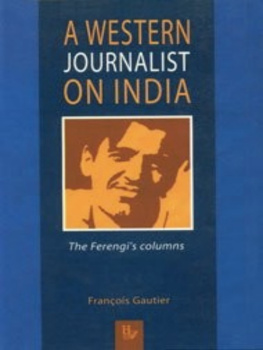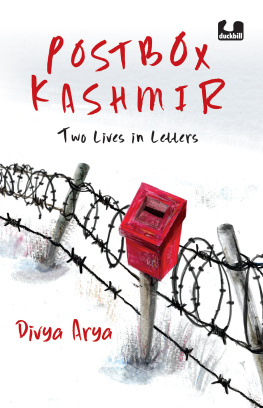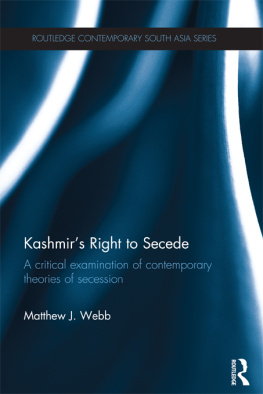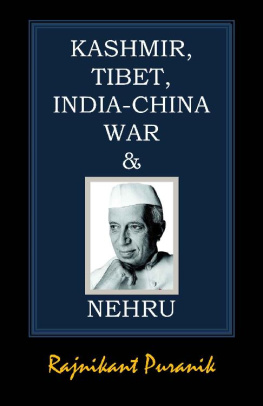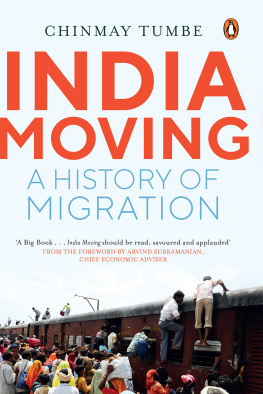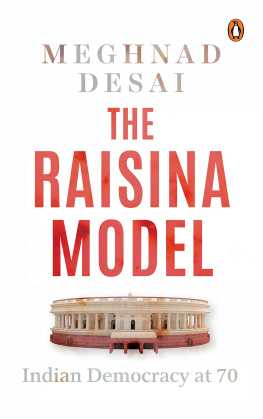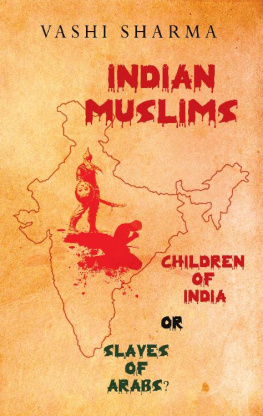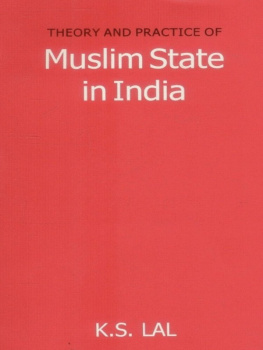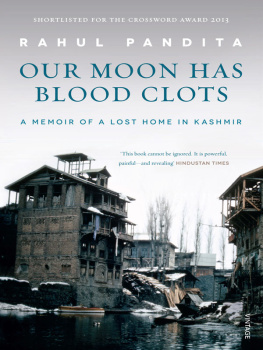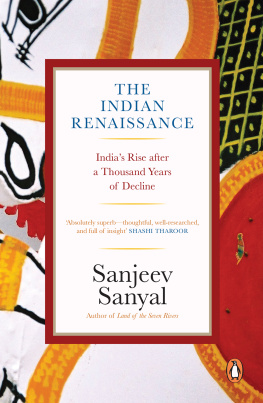Foreword
The author wishes to express his gratitude to Sudheendra Kulkarni, one time editor of Blitz; to Mr. Narayanan, editor of the Hindustan Times, when it was still a versatile newspaper; and to Shekhar Gupta, editor of the Indian Express, who stuck by him in spite of a lot of internal resistance !
India, for a western journalist, is a vast, diverse, difficult and often contradictory country. Most foreign correspondents are posted here for three, or a maximum of five years, too little a time to grasp the intricate subtleties of the subcontinent . As a result, western journalists, however talented and well-meaning they are, often leave with the same opinions with which they had arrived, having meanwhile fed their readers with near identical stories: "how Christians are persecuted in India, the rise of the THE FERENGI'S COLUMNS: dangerousTHE FERENGI'S COLUMNS: RSS, the Human Right Abuses of the army in Kashmir, or some side feature on Medha Patkar and the Narmada Dam".
The author considers himself lucky: he came to India when he had just turned nineteen, an age where the mind has not yet settled in hard and frozen patterns and was able to discover this country through more than twenty years of reporting from Srinagar to Kanyakumari. These collections of articles, written for Blitz, the Hindustan Times and the Indian Express, represent the story of his awakening to what he feels is the true India, beyond the clichs and prejudices the West seems to have inherited from colonial times.
ABOUT THE AUTHOR
Franois Gautier, born in Paris in 1950, is a French journalist and writer, who was for eight years the political correspondent in India and South Asia for THE FERENGI'S COLUMNS: Le Figaro THE FERENGI'S COLUMNS: , FranceTHE FERENGI'S COLUMNS: s largest circulation newspaper. He is married to an Indian and has lived in India for the past 31 years. Francois, who presently writes the "FerengiTHE FERENGI'S COLUMNS: s columnTHE FERENGI'S COLUMNS: in the Indian Express, shuttles between Delhi and the international city of Auroville near Pondichery.
India, for a foreign journalist, is a vast, diverse, difficult and often contradictory country. Most foreign correspondents are posted here for three, or a maximum of five years. They often arrive here with unconscious prejudices and set ideas - since the West is generally totally ignorant of India - and are posted in Delhi, an arrogant city, de-centered compared to the rest of India, where they tend to hear the same stories, the same opinions in the Embassy cocktail circuit, or at journalistsTHE FERENGI'S COLUMNS: parties: "secularism, communalism, caste abuses, sati, Hindu fundamentalists", etc.
As a result, western correspondents, however talented and well-meaning they are, not only rarely see the real India, but they often leave after four or five years with the same opinions with which they had arrived, having meanwhile fed their readers with near identical stories: "how Christian are persecuted in India, the rise of the THE FERENGI'S COLUMNS: dangerousTHE FERENGI'S COLUMNS: RSS, the Human Right Abuses of the army in Kashmir, or some side feature on Medha Patkar and the Narmada Dam".
I was lucky: I came to India when I had just turned nineteen, an age where the mind has not yet settled in hard and frozen patterns. The moment I stepped in India, I sensed I had come "home" and felt immediately at ease with my brothers and sisters from the land of Bharat. I was also extremely privileged to spend the first eight formative years of my time in India in the Sri Aurobindo ashram of Pondichery, where I came in contact with Indians from all over the country and was able to meet the Mother, an extraordinary person, as well as read Sri Aurobindo, whose writings have had a deep influence on my life.
Thus, I thought, in my arrogance, that I knew India. But when I began freelancing in the early eighties, I started with the same prejudices, set ideas than most of my fellow correspondents have: secularism is the best system for India, given the explosive mosaic of its ethnics races and religions; the Congress is the flag bearer of THE FERENGI'S COLUMNS: secularismTHE FERENGI'S COLUMNS: ; Gandhi is the THE FERENGI'S COLUMNS: fatherTHE FERENGI'S COLUMNS: of the nation; there are also Hindu THE FERENGI'S COLUMNS: fundamentalistsTHE FERENGI'S COLUMNS: ; or Christian missionaries are doing THE FERENGI'S COLUMNS: wonderfulTHE FERENGI'S COLUMNS: work in India.
Once again, I was lucky. Instead of plunging straight into political India, where journalists, both Indian or foreign, quickly become cynical THE FERENGI'S COLUMNS: if not bitter - I did photographic features in the deep South: the extraordinary kalaripayat, the villages of Kerala, which is the ancestor of all great Asian martial arts in; the absolutely amazing Ayappa festival on the border of Tamil Nadu and Kerala; Ayurveda, the most ancient medical system in the world still in practice; the exquisite Ayanars of Tanjore districtTHE FERENGI'S COLUMNS: There, I discovered that the genius of India is in its villages and that the tradition of gentleness, tolerance, hospitality, is rooted in rural India (Mark Tully, in his own way, came to the same conclusion in the North) THE FERENGI'S COLUMNS: and not in the cities of India, where people have often lost touch with that inner reality.
And when I entered the world of south Asian politics (in 1984, for Le Journal de Genve), I was ready to have my eyes opened. Thus slowly, as I came in contact first-hand with the political reality of India and South Asia, I realized that the Congress had actually stolen the merit of having achieved IndiaTHE FERENGI'S COLUMNS: s independence from the real nationalists, Tilak, or Sri Aurobindo; that it had encouraged a criminal de-culturation of India at the hands of the Marxists; that the Mahatma Gandhi, however a great soul, he might have been, had, through his rigid non-violence, precipitated IndiaTHE FERENGI'S COLUMNS: s partition; that India was fighting a lonely battle against Muslim fundamentalism which surrounds her; that the RSS is probably one of the most harmless outfits in Asia; that the Ayodhya mosque stood like an incongruous wart in the midst of a wholly Hindu town; or that generally India is terribly misunderstood in the West.
These collections of articles, written mostly for Blitz, the Hindustan Times and the Indian Express, represent the story of my awakening to the true India THE FERENGI'S COLUMNS: or at least to what I feel is the true India, because no one, least of all a foreigner, can claim that he or she fully understands the wonder, the baffling diversity and the extraordinary unfolding truth that is India.
THE FERENGI'S COLUMNS: AYODHYA
1. AYODHYA
Ayodhya marks my political awakening. It is there that for the first time I came in contact with this strange phenomenon of Indian politics (which repeats itself all over the world): that what appears true, may often turn out to be false or is at best a half-truth; and that which seems false, or politically not correct, often turns out to be a truth. Journalism has to be a first-hand experience; that is, the correspondent should be able to judge what he has been asked to report THE FERENGI'S COLUMNS: not through the prism of his atavism, set ideas and prejudices which he brings with him - but thanks to an inner intuition towards which he has constantly to aspire. Ayodhya is the perfect example of an untruth which has been taken as a universal truth by India and the whole world, because very few journalists cared to look beyond appearances.
THE SYMBOL OF AYODHYA
How many of those who have lambasted so many times the "Hindu fundamentalists" and lamented the destruction of the Babri Masjid mosque as the "death of secularism in India", have been to Ayodhya THE FERENGI'S COLUMNS: and not Faizabad, mind you, which is Ayodhya's twin Muslim city ? When one arrived in Ayodhya before the destruction of the mosque, one was struck by the fact that it was a Hindu town "par excellence". More than Benares even, it is dotted everywhere with innumerable temples; it has all these old Hindus houses and this lovely river with its ghats which runs through the lower town. And then, forlorn on the top, there was this lone mosque with its two ugly domes, which looked so out of place and unused, that any one with a right sense -and that includes the Muslims- should have seen that it was not worth making an issue of. The destruction of the Babri Masjid still evokes such fiery reactions, that the importance of Ayodhya has been totally overlooked: Ayodhya is a

